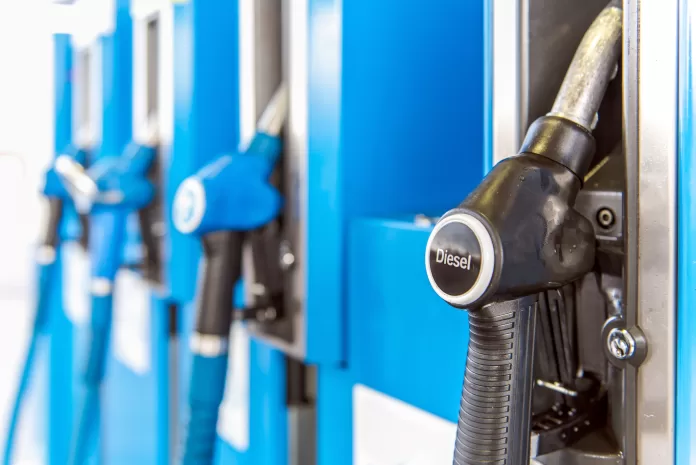Diesel-powered car engines continue to be a significant segment, of the automotive landscape in the African market, due to their fuel efficiency and power output. However, diesel fuel can contain impurities and contaminants, that can lead to problems such as fuel injector fouling, poor combustion and reduced engine performance. Diesel additives are chemical compounds, that are added to diesel fuel to improve its quality, performance, and stability. Africa Automotive News (AAN) had a conversation with Alberto Rischio, (AR) the Export Manager at SACIR EST Srl., discussing the advantages and significance of diesel additives for Passenger cars.
Additionally, SACIR EST Srl is looking forward to meeting you at their second edition of the Kenya Auto Expo, set to take place from May 28-30, 2025. Make sure to stop by!
AAN: Tell us a brief introduction about EST – Car Care Products.
Alberto Rischio – Export Manager at SACIR EST SrlAR: SACIR EST Srl. was founded in 1964 and is located in Milan in Northern Italy, the heartbeat of the country’s economy. The EST brand is recognized by customers for fuel additives, technical products for workshops and for the Velox Glass brand windshield washer fluid. In recent years, SACIR begun to offer a range of products for the care and aesthetics of the car body such as the trigger line for cleaning plastics, glass, rims and fabrics. We export towards 19 countries around the world and as regards the African market we work in Morocco, Ghana, Egypt and Kenya.
AAN: What are diesel additives and why are they necessary for passenger cars?
AR: Diesel additives are treatments to clean and keep your car running efficiently continuously. Additionally, these additives are specifically formulated to address various issues related to diesel fuel and engine components. They are added to the fuel tank, mixing directly with the diesel fuel before combustion. Their use is increasingly recommended, for diesel engines, as these vehicles often have tighter tolerances and more sensitive fuel systems, making them particularly vulnerable to the negative impacts of poor fuel quality.
AAN: How would you briefly describe the different types of diesel additives?
AR: We have a large offer of additives for diesel cars. From cleaning the injectors to cleaning the DPF. There are 7 items of which 2 are for professional services.
AAN: How often should diesel additives be used in a passenger car?
AR: It depends on driving conditions. All treatments are for a full tank of diesel (50-60 liters) and the content is 250 ml. Commercial items as EST Diesel treatment each for 2.000 km, EST Diesel DPF Cleaner each for 4.000 km and Diesel Injector Cleaner each for 5.000 km. Then we have professional Items as EST Complete fuel system cleaner diesel EST Diesel Particulate Filter cleaning system for 7.000 km
AAN: Can using diesel additives improve fuel efficiency and reduce emissions in a passenger car?
AR: Sure, the use of the diesel additive serves to reduce pollution, fumes and fuel costs up to 3%
AAN: How can the antifreeze effect of diesel additives improve engine efficiency?
AR: Using diesel freeze protection prevents your car from freezing and not being able to start. With EST Diesel Protection for -20°C the paraffin will not clog the diesel filter and will ensure a safe start.
AAN: Any specific dos and don’ts when it comes to using diesel additives in passenger cars?
AR: First use a good radiator coolant, then use additives as preventions to possible future problems…see blocking of injectors, diesel filter or DPF. So additives are like toothpaste if used always you will have teeth without problems.
AAN: What is your recommendation on choosing the right diesel additive for a specific vehicle and driving habits?
AR: My advice is to know your car well and what you use it for. Short or long distances. Check the system cleaned ever.
Drive longer on less fuel
While diesel fuel itself provides a potent source of energy for passenger cars, the strategic use of diesel additives significantly enhances both the efficiency and longevity of the engine. By improving fuel economy, protecting against damage caused by contaminants and optimizing engine performance, these additives represent a cost-effective investment in the long-term health and reliability of your diesel car.
The added benefit of reduced emissions contributes to a more environmentally responsible driving experience. Therefore, incorporating a high-quality diesel additive into your regular maintenance routine is a wise decision for any diesel passenger car owner.
Furthermore, it’s crucial to distinguish between legitimate additives and those lacking scientific backing. Always choose additives from reputable manufacturers with documented testing and evidence of their effectiveness. Using substandard or incorrectly formulated additives can potentially harm the engine, causing more problems than they solve.




